With more than 4 million boxes of green asparagus and 1.5 million of grapes exported annually, Beta is positioned among the top ranking Peruvian exporters in these two categories. Their main grape varieties are Red Globe, Thompson and Crimson, grown in the Piura area, and most is exported to Asia, specifically in the complex Chinese market. “We are able to reach the most distant ports with fruit in a good condition and all its organoleptic qualities intact, because we run a highly efficient logistics setup”, explains Mónica Dávila. Beta’s strategy in 2014 is to achieve growth through maintain a good market positioning and providing their clients a secure supply throughout the season, through a long-term trade relation, quality and calibre focused on the needs of each client and a fully customised service, allowing great flexibility to adapt to all kinds of scenarios.
Uncategorized
Costa de Almería with more specialities in fresh and ready-to-eat
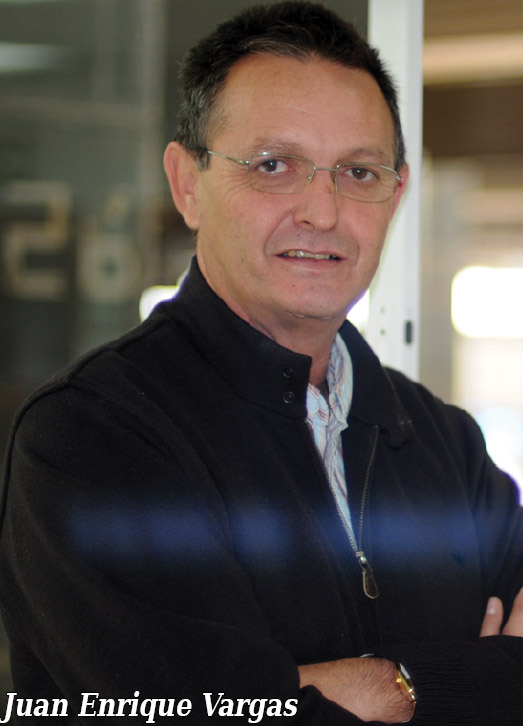
The group continues to increase the number of specialties it supplies both in fresh and precooked produce. This year they are introducing the Palermo pepper (broader Italian type with thicker walls and red colouring), cow horn pepper (mainly for Hungary), hot pepper and raspberry.
Last year the group spent 1.5 million on its “5th range” precooked convenience foods factory, where they prepare and pack red, green and yellow roasted peppers, and the same product with cod, ready to eat with a 6-month shelf life, under the “QDelicias” brand. Roast courgette and aubergine products will soon be added to the assortment. To this end, they have secured an agreement with the Andalusian Institute of Agricultural and Fisheries Research and Training of Andalusia (Ifapa), with a view to developing these new products.
The “QDelicias” range will be traded in the domestic market, the United Kingdom and France. Overseas markets are also explored: Costa de Almería took part in a promotional activity in Mexico along with Extenda, to promote their ready-to-eat range in the 89 Superama chain outlets in this American country, a company belonging to Walmart Mexico and Central America with a track record of over 45 years.
“The added value of QDelicias roasts is their freshness, as the pepper is roasted recently cut and packaged immediately”, notes Vargas. Costa de Almería will continue its investment strategy with another 1.5 million euros to expand storage facilities by 2000 m, cold chambers by 1000 m, a cucumber line and manufacturing machinery for cherry pear tomato.
The group closed last season with a sales volume of 140 million kilos, which translates to a value of around 100 million euros. Chairman Juan Enrique Vargas considers that the sector “has covered costs and that’s not enough, despite the crisis context. This year we’ve exceeded last year’s production figures with roughly 20 million kilos more”, explains Juan Enrique. He added that this also had a lot to do with the la E. coli crisis from the previous campaign, which obliged them to “shut up shop” 2 months earlier than anticipated.
Costa de Almería Fruit and Vegetables closed the crop year with an average price of just over half a Euro per kilo produced, similar to the figures reported throughout the sector. “To say that the campaign has been good, the average price should be around 60 or 65 cents per kilo”, he explains.
The Roquetas de Mar-based Group embarked upon a six-year strategic plan of action in the previous campaign which accounts for more than €3 million in investments. It culminated last month with the purchase of reference auction Cehorpa from Agrupaejido, for a spend of 15 million euros.
Hortofruticola Mabe consolidates growth
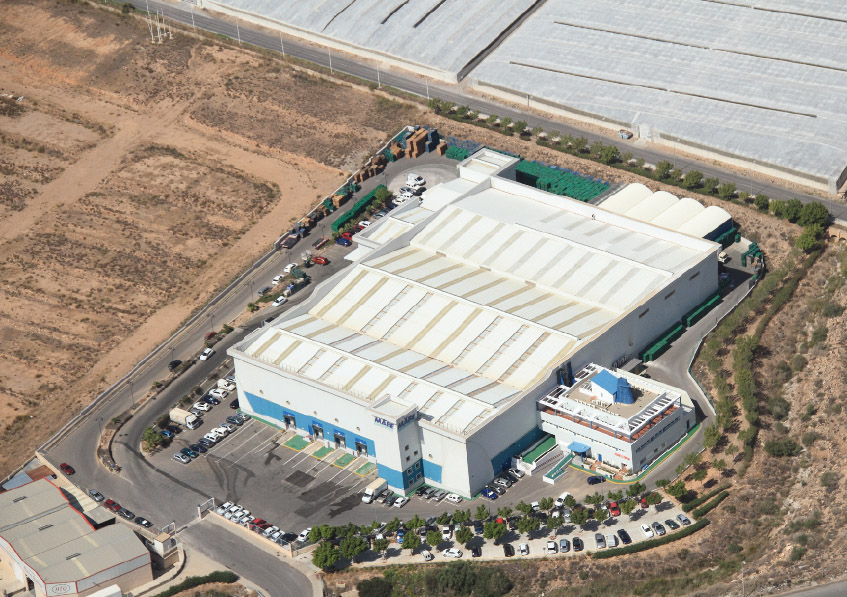
One of the benchmarks in peppers, Mabe Hortofrutícola is keeping up its winning quality commitment and confirms its growth forecast of 8% to 70,000 tons traded this season. For this campaign they have 600 ha of greenhouse vegetables in production. They are backed by prestigious certificate such as Global Gap, BRC, Tesco Nurture, QS, IFS, Albert Heijn, etc.
Cucumber and pepper are the items showing the biggest increase, with +30% and +18% respectively. Their annual supply adds up to 35,000 tons of pepper and 18,000 of cucumber. This campaign, along with the rest of the sector, quantities are being affected by the recent attacks of New Delhi virus, with a sharp drop of around 40%, amid fears that the watermelon and melon campaign might also feel the impact, according to initial tests.
MABE, whose objectives are quality, safety and sustainability, is working on the rollout of a FOOD DEFENCE system involving measures to prevent intentional contamination of the production process or products by means of chemical products, biological agents or other noxious substances. MABE also engages in sustainability programmes through the implementation of energy consumption saving equipment.
Agroponiente Group reaches 286 million kilos
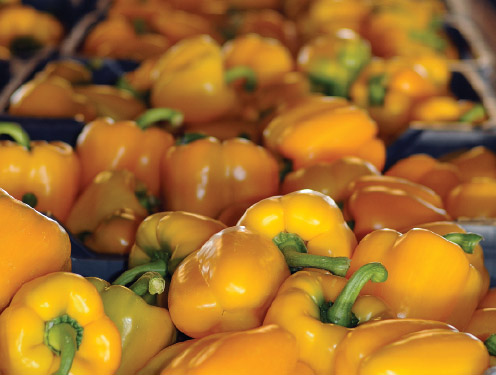
The group’s production area is spread throughout the province of Almeria, from Cuevas de Almanzora to Adra, with logistic points in areas such as La Alpujarra, Alhama, Palomares, Níjar, Adra, Roquetas or El Ejido, as well as along the Granada Coast.
The group trades in nine product families, including tomato, cucumber, pepper, courgette, aubergine, beans, Chinese leaves, melons and watermelons, each with a wide range of varieties.
The group’s production last season notably reached 286,000,000 kg, a result unassumingly qualified by the company as “moderately positive”, with similar figures forecast for the current campaign.
The main distribution channels for Grupo Agroponiente focus on wholesale trading, aimed at supermarket chains and markets.
The Group has been characterised for several years now by sustained growth in volume and custom, covering practically all countries in Europe, with pride of place going to Germany, the United Kingdom, France, Poland and the Netherlands, followed by Scandinavia and the Baltic countries as well as Russia. Over the last two campaigns they have rolled out a strategy of direct trading with the United States and Canada, which is also continuing an upward trend. Alongside this, it should be noted that just over a year ago the group started up trial exports to North America, with produce shipped to Canada and the eastern coast of the USA. The plan is to continue this experience for the coming campaign and one of the main challenges lies in the logistical organisation required in order to make headway in terms of volumes and customer portfolio. The proliferation of specialities is remarkable, especially in tomatoes and peppers, but also in other products such as aubergine. Agroponiente is currently engaged in an in-depth task to link production with market demand, among other things focusing on these specialities, ranging from black tomato, cherry, Rebellion or Raf to striped aubergine or several different types of pepper.
La Unión exceeds 1,000 ha in cultivation
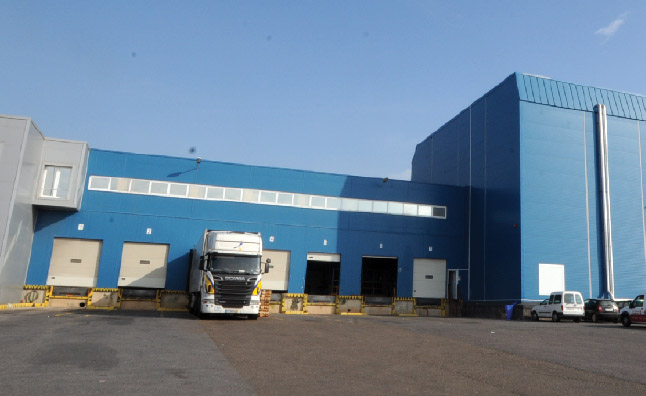
Alhóndiga la Unión’s growth is set to continue in coming campaigns. Today they have around 1,000 hectares in cultivation and certified by GlobalGAP.
Last season they traded 270 million kilos and 5% growth is forecast for the current campaign. La Unión supplies a broad variety of products, with cucumber as the main attraction at 31% of production, followed by pepper at 19%, courgette at 17%, then watermelon and tomato with 10% and the rest in aubergines, melons and beans.
Their main distribution channels are through the supermarket chains. Around 65% of their produce is traded through these outlets, while the rest is marketed by commercial agents. La Unión is raising the courgette category due to demand and the product’s widespread uptake in new destination markets. They are also introducing the round courgette, which is being very well received. Russia is currently one of their main destination markets, taking in a large percentage of exports. Moreover, last year they opened up new receiver markets in the USA and Canada. The quality department at Alhóndiga la Unión certifies the whole production process, all the way from the farm to manufacturing in their warehouses. To this end they maintain all the relevant certification such as BRC, IFS, Integrated Production, Tesco Nature, GlobalGap as well as their own laboratory, accredited by ENAC, where over 30,000 analyses are performed. The Group’s interest in the quality system is further highlighted by their initiation in GlobalGap Grasp certification and signing up to the Ecoembes programme. As part of their environmental commitment, they have 4 Sigfito pickup points for used phytosanitary product containers.
Their extensive professional trajectory continues apace with the development of a new robotic line for courgette and their latest new product, a microperforated plastic container to increase the shelf life of produce by up to 20 days.
Bonnysa launches new “Sanflavino” gourmet range
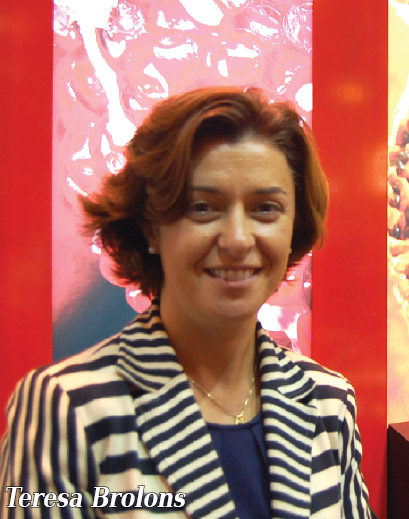
Fresh tomato is still the company’s most traded product, with 90 million kilos shipped last season, followed by 55 million kg from the tropical range and around 14 million in plantain and bananas. Their estimates for the current campaign point to 5% growth in tomato and tropical fruits, but the highest growth will be reflected in their new “Sanflavino” gourmet range, with a forecast increase of 20%. This new line includes a variety of prepared tomato produce such as sun-dried tomatoes in oil, semi-dried Canary or cherry tomatoes in saffron or basil and a wide assortment of natural refrigerated products like gazpacho, salmorejo, tomato juice…
In fresh produce they plan to expand into Dubai, the United Kingdom, Scandinavia and both Eastern and Western Europe. With their gourmet product Sauflavino Bonnysa intend to open up markets such as Japan, China and the United Arab Emirates in addition to trading in countries such as France, Germany, the UK and Denmark. “As Marketing Director at Bonnysa, my prediction for 2014 is that Sanflavino will be a resounding success in emerging countries”, notes Teresa. Sanflavino stands out as natural and with no preservatives, “from seed to plate.” It’s a product for people who enjoy eating well and trying new flavours, but who aren’t such good cooks”, adds Teresa.
The new gourmet products line is divided into several selections. The Chef Selection features highlights such as traditionally dried tomatoes, semi-dried peeled tomatoes with saffron or basil and an olive oil accompaniment or semi-dried cherry tomatoes. The Spreadsto line consists of artichoke or tomato varieties for spreading or use as a garnish. Finally, the “Tomato Recipe” delights us with gazpacho, tomato juice, salmorejo, or striped tomato, all with the most natural and Mediterranean flavour.
Their next launch will be grenadine juice, which they expect to stand out from the rest due to its preventive powers against cancer and heart disease.
This year the company has invested in machinery and land. They take in everything from the nursery seed beds to harvesting and packing, with crops located in Alicante, Almeria, Murcia and Tenerife.
They hold the UNE-EN ISO 22000 certificate from AENOR for tomatoes and bananas, but are most notably pioneers in achieving an AENOR Certificate of compliance with BRC technical requirements for companies supplying farm food products. They have also rolled out the ISO 22000 standard to develop a food safety management system for their produce.
CASI also sells Raf tomato on-line
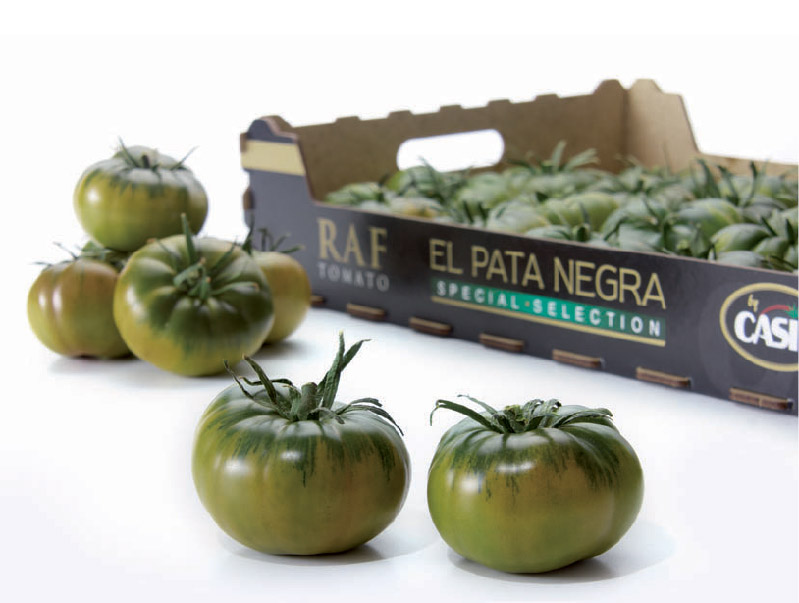
In December the Spanish tomato leaders started up online sales via www.rafdecasi.com of their “premium quality” tomato, a Raf painstakingly cultivated by experience specialist farmers, combining their efforts to achieve an unparalleled sweetness, tender and ideal for serving or gifting as a high quality product. In the current 2013/2014 campaign, CASI expect to trade around 7 million kg of Raf tomatoes through their online store, auctions, supermarkets and gourmet shops. Due to the product’s quick ripening features, most of the output, around 90%, is traded in the domestic scope, whereas only 10% is shipped abroad, exclusively to European countries. The crop area given over to this excellent tomato variety is estimated at around 100 hectares.
As their website explains, Raf is a very delicate tomato that requires special conditions and growing techniques; these include poor soils, very little irrigation and with highly saline waters, with salt concentrations up to ten times higher than normal. The plant’s roots are weak so must be handled with care; it is not very productive and highly disease-prone.
Since it is the most delicate and highly valued product, the cooperative has created specific containers for this tomato, high-quality and carefully designed. In their online store, the purchasing system consists of four simple steps.
The www.rafdecasi.com site also explains how consumers can distinguish it from other varieties: “It’s a smaller product in general, with deep grooves, irregular in shape and a deep green colour. However, it is characterised by an excellent flavour and sweetness impossible to find in other varieties.” They also provide recipes to prepare it, such as tomato and cod salad or Raf tomato vinaigrette with basil, although ideally it should be eaten fresh with a pinch of salt and extra virgin olive oil.
Ecopark, organic cherry tomato leader
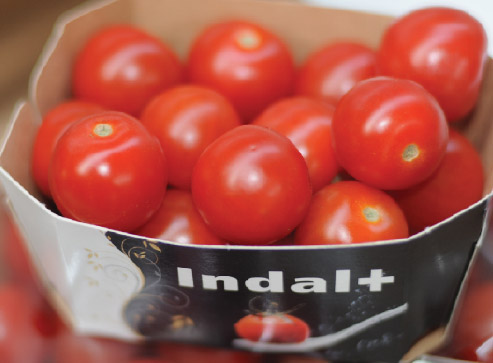
Ecopark is consolidated as Europe’s largest organic cherry tomato producer. Germany, the United Kingdom, Switzerland and Scandinavia are the main customers. Meanwhile, France is the market showing most progress over the past 10 years. “Today we provide more volume, with greater security and confidence thanks to an improvement in our competitive edge, with 100% of our produce now organic”, explains Luis Olcina.
To this end, they recently set up a 60 ha organic cultivation unit in Mazarron (Murcia), in addition to those already up and running in Nijar and Sierra de Tabernas. “Today around 70% of our cherry tomato operation is grouped in Mazarrón, since we are pioneers in rolling out organic tomato in the area.” Mazarrón allows cultivation all year round – under mesh netting in summer and plastic sheeting in winter.
Ecopark also made a strong investment of over €400,000 this year in their storage and preparation facilities. They have also refreshed the image of their Ecopark and Indal+ brands.
Ecopark today takes in 3 members and 12 producers. Their ongoing annual growth is between 7 and 10%, achieving a turnover for 2013 of €15 million and 8,000 tons traded. They supply a full range of cherry tomatoes, including the round, pear, vine, orange, yellow and zebra types. They also diversify their organic range with more cucumbers, peppers and round tomatoes. They hold A+, Sohiscert and CAAE organic certifications in the field, as well as Ceres, IFS and BRV in storage, in addition to GLobalGAP and Grasp.
Vicasol with 150,000 tons of produce
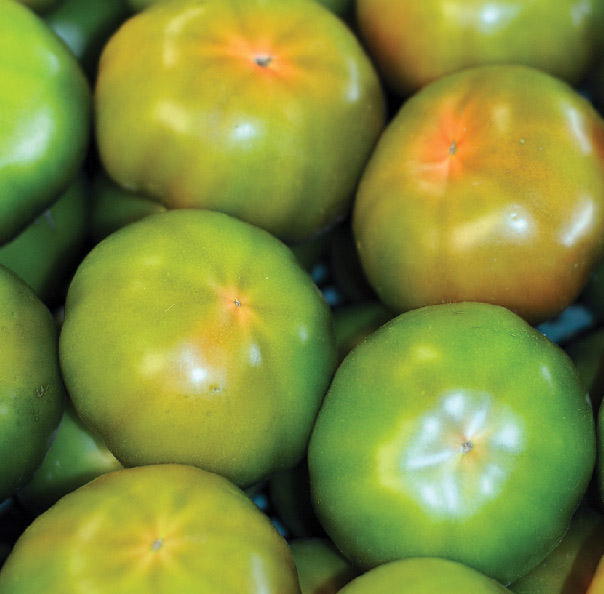
The Vicasol company from Almeria continues to grow every year, with a trading volume of 150,000,000 kg in the last campaign and forecast growth of 15% to around 170,000 tons for this season. Vicasol has 1,200 ha of crops and 550 producers.
Tomato is the main category, accounting for 65% of volume, with the rest spread between pepper, aubergine, cucumber and melon. Among their successful new varieties we find vine cherry, pear cherry and black pear cherry tomatoes. Meanwhile, their main salad items are cocktail tomatoes, black tomatoes, loose tomatoes and Canary. Most notable among their pepper lines are the many varieties in different colours and sizes
Vicasol’s commercial strategy is still focused on growth, with more farmers, more kilos and more quality products to reinforce their position in the market. Their main clients are located in Germany, France and Spain. Meanwhile, negotiations are still underway in the UK, Russia and the Baltic States, mainly with supermarkets, studying the best way to position the company to reach them directly.
Vicasol CEO Jose Manuel explains that his job mainly consists of forging closer ties with customers, directly anticipating each client’s needs in the most personal way possible. “Knowing our customers, with their individual specifications and needs, is crucial to us, but our most distinguishing feature is our great quality and personalised service”, adds José Manuel. They also plan to improve working systems while investing in workforce and machinery to continue their upward trend.
Vicasol’s quality system is based on certificates such as GlobalGAP, BRC, IFS, Tesco Nurture, ICE and QS. The latter covers all participants in the food chain and certifies their safety rating, ensuring consumer confidence. The co-operative also collaborates in the “Bayer Food Chain” programme, developing better and more closely monitored plant health control strategies to meet the specifications of a large-scale distribution sector that is increasingly demanding on issues such as pesticide residues. “The European distribution requirements are 30 to 50% more restrictive than the MRLs set by the EU. The Bayer initiative will bolster our credibility and bring peace of mind to our customers”, declares Juan Carlos Urrea. Bayer helps to improve pest monitoring with more rational use of pesticides compatible with biological control. Juan Carlos recalls how the Vicasol farmers started up biological control 7 years ago in all their crops: “For the past four years, bio control has been applied in 100% of our tomato, cucumber, courgette, pepper, melon and watermelon crops.” Bio control practices also entail the use of bio-stimulants, even for soil-borne pests such as Trichoderma.
Gautier Semences new supply and position in Turkey
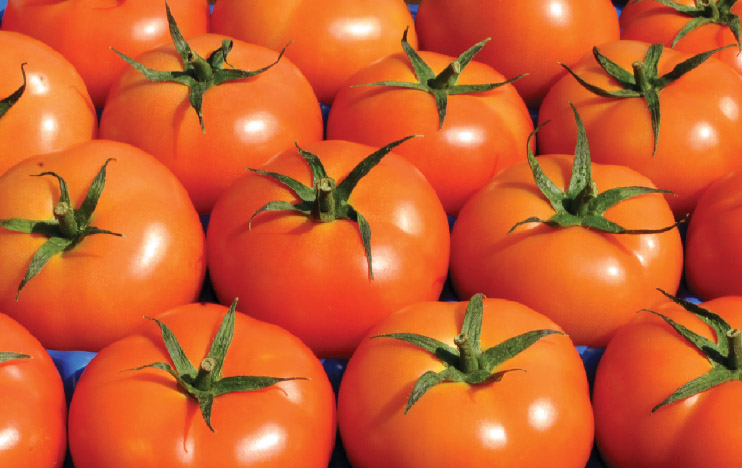
Gautier Semences is consolidating its presence in Spain and launching new tomato and melon varieties. The French seed company has detected great progress in Sucrine lettuce consumption in the Spanish market. As for tomatoes, Gautier highlights the first Marmande hybrid trio: Rafati, a red Marmande with great flavor, Marnero, a black Marmande combining sweetness and character, and Margold, a yellow pineapple type Marmande, with an original color and taste. This year, the seed company is also launching new Charentais melons in France, Spain and Morocco, such as Allegria, a green Charentais with a long shelf life, ideal for exports; Delfrisco, a yellow Charentais resistant to aphids that is well-adapted to early protected cultivations; and Jenga, a yellow Charentais for the main season’s cultivation.
Continuing to focus on business growth and R&D investment, Gautier Semences recently inaugurated a new research centre in Eyrargues (France) and took on Argun Sahin as the new country manager for Turkey, in order to expand business in the Mediterranean markets.
